Earlier this year, Dan and I gave Windows Phone 7 a solid try. We put our iPhones away, and for the next two months we used only the HTC Titans that we had received at a CES event. You can read about our entire experience here, here, here, and here.
As much as we both liked the Windows Phone OS and the Titan’s hardware, we each ultimately went back to our iPhones. Probably the biggest reason I couldn’t make things work with my Titan (or the Lumia 900 that I later bought in April) was that I missed the efficient app ecosystem I had created on my iPhone. And maybe it shouldn’t have been that big of a deal that when using my Windows Phone I couldn’t post a picture to Instagram, or play a round of Words with Friends, or keep up with my Eventbrite tickets … but after a while it did start to matter. It didn’t help that every new and cool app coming out was for iOS or Android, and that Windows Phone was being treated like a red-headed step-child by developers. Not that I could necessarily blame them; I mean, where was the money at? iOS and Android, based on the number of devices currently out there.
Fast forward to June and the big announcement about Windows Phone 8. It was a bit of a kick in the pants to find out that neither my HTC Titan nor my two month old Lumia 900 would upgrade to the latest WP OS, but considering that an upgrade path was never explicitly promised, I eventually got over it; after all — the inability to upgrade isn’t exactly a new thing.
Even before attending the Windows Phone 8 Launch in San Francisco last month, I found myself — once again — getting excited about Windows Phone. Attendees at the event were given a pre-production AT&T HTC Windows Phone 8X, HTC’s latest Windows Phone flagship device.
I’ve been using the HTC 8X Windows Phone as my secondary phone since receiving it; I couldn’t quite make it my daily driver, because my primary phone — the iPhone 5 — uses a nanoSIM. Thankfully, the review sample came with a pre-paid microSIM installed.
So say hello to the HTC Windows Phone 8X; available in California Blue (8GB or 16GB) or Limelight Yellow (8GB only), I have the 16GB California Blue version. This phone measures 5.25″ long x 2.65″ wide x .45″ thick (measured at the widest part), and it weighs 4.5 ounces. The unibody design is composed of matte soft-touch polycarbonate, with slightly rounded corners and a gently curved back, making the 8X fit wonderfully in hand.
The entire front of the device is covered in black Gorilla Glass 2, which is broken only by the blue ear speakerbar near the top and the lens of the front-facing camera; the overall effect is stunning and attention-gathering.
The HTC 8X Windows Phone is slightly larger than an iPhone 5, and yet slightly smaller (and much thinner) than so many of the 4.7″ and larger screen devices; I believe that many will find the 8X’s size to be juuuuuust right.
Let’s cover the 8X’s specifications, and then we’ll take a tour around the device.
Processor: Qualcomm® S4 1.5 GHz, Dual-core
Operating System: Windows Phone 8
Memory: Total storage: 16 GB, available capacity varies, RAM: 1 GB
Display: 4.3 inch super LCD 2 touch screen with HD 720 x 1280 resolution Super LCD with Gorilla® Glass 2
Network: GSM/GPRS/EDGE: 850/900/1800/1900 MHz HSPA/WCDMA: 850/1900/2100 MHz LTE:700/850/AWS/1900 MHz
GPS: Internal GPS antenna with GLONASS
Connectivity: 3.5 mm stereo audio jack, NFC capable, Bluetooth® 3.1, Wi-Fi®: IEEE 802.11 a/b/g/n
Camera: 8 megapixel camera with auto focus, LED flash, and BSI sensor (for better low-light captures), F2.0 aperture and 28mm lens, 1080p video recording, Dedicated HTC ImageChip
Battery: Embedded (non user-removable) & rechargeable Li-ion Polymer battery, Capacity: 1800 mAh
Special Features: Studio-quality sound with Beats Audio™ built in, Enjoy bigger sound and superior fidelity with exclusive built-in amp
As I mentioned, the top of the HTC 8X Windows Phone has a 2.1 megapixel front-facing camera to the left of the ear speaker bar. A notification LED is embedded in the speaker bar’s right side; it will glow red when charging and green when the battery is fully charged.
The bottom of the HTC 8X Windows Phone has three capacitive buttons (Back, Home, and Search) that glow white when the screen is activated; they also give haptic feedback when touched.
The bottom has a microphone on the left of the microUSB port.
The right side of the HTC 8X Windows Phone has a dedicated camera button (that will activate when pressed and held if the phone is locked) and a volume rocker switch.
I’ll flip the phone over for just a moment to show you the MicroSIM slot; HTC borrowed a page from iPhone (and later Nokia) by making the SIM tray accessible with an included metal tool.
The left side of the phone is plain.
The top of the HTC 8X Windows Phone has a 3.5mm speaker jack, a second noise-canceling microphone, and something I was happy to find — a perfectly placed power button that will keep former iPhone users from fumbling around.
The 8X’s rear has a centered 8 megapixel camera lens with an LED flash near the top and a speaker bar near the bottom.
The HTC 8X Windows Phone is solidly built; it does not creak when torqued, and it does not flex at all. Part of the reason for this is likely because there is no user-removable battery, and therefore no flimsy removable battery door. Considering the decent life that I have seen from the 1800 mAh battery, it is a fair trade-off.
Unlike the LG Optimus G that I’ve recently received to review, the Lock Screen on the 8X can be set to show many things; common to all will be the icons indicating signal strength, WiFi availability, battery life, the time, the day, the date, but you can choose an app (mine is Calendar, showing upcoming appointments, but it can also be set to show any of your apps or PIMs that have been designated as able to display there — Facebook, email, Live, Messaging, the Phone, etc. You can also choose which apps you’d like to show quick status; icons are there for phone, messaging, Live, email, but you can also add from others such as Facebook, games, or battery level. I really like this level of personalization.
As a phone, the HTC 8X Windows Phone performs extremely well. It is comfortable to hold, the sound quality is excellent, and signal strength is better than average — even in crappy EDGE areas like our home in the middle of nowhere. In San Angelo, which has 4G coverage, the phone is fast and furious. Speaking of fast; the 1.5GHz dual-core Qualcomm Snapdragon S4 SoC is completely capable, and so far I have had no lags. The screen is gorgeous, and easily visible indoors or out, and … this phone has Beats Audio, which, when coupled with a better set of headphones becomes a sound experience!
The 8X can also serve as a hotspot for up to eight other devices.
Perhaps the only real disappointment for me has been that this is the “loaded” 8X, and yet it still only has 16GB memory, and that is all it will ever have. I thought that one of Windows Phone 8’s selling points was that it would allow microSD storage … but HTC didn’t put a slot in the 8X. I haven’t even transferred much over to the 8X music or video-wise, and space is already about to become a problem. Pffft.
Anyway.
As expected, the camera does a great job in full daylight, which almost any 2 megapixel throw-away cam can do. But how about in a poorly lit room with no flash?
All pictures are thumbnails, please click to enlarge.
Or in a poorly lit room using the flash?
Otis is not amused
Or in an extreme macro situation?
Seriously, click the links and look at the full-size photos!
I’m not complaining; I think that the HTC 8X Windows Phone’s camera is better than average.
Windows Phone 8 does bring some new features that Dan and I had hoped for in 7; for instance … Now you can customize the Live Tiles to different sizes.
Watch! See the Live Tile that says “20 New Items”?
I think it needs to be smaller; so all I have to do is press and hold … the option to “unpin” the tile is still there, but now an arrow indicates that if I want to make the tile smaller, all I have to do is tap it the arrow.
So I tap it the arrow, and the tile becomes quarter sized.
But now I think maybe bigger was what I really wanted, so I tap the arrow again …
Okay, that’s too big!
But the cool thing is that I have options now, where I didn’t before. If I want a huge Live Tile with the weather, I can have it. If I only need a tiny Live Tile for the Windows Phone Market or Settings, it’s easy to configure. I can make the Homescreen look like I want it to, with the exception of Folders … there are still no folders. At least the app list is still east to fly through, but I do wish that there was a way to arrange apps other than alphabetically or pinned singularly to the Homescreen.
Because this is the AT&T Branded 8X, there are a few AT&T titles pre-loaded on the phone: the AT&T Code Scanner, AT&T Family Map, AT&T Navigator, AT&T Radio, AT&T U-verse Live TV, myAT&T and YPmobile — all pre-loaded but all are also easily hidden by “deleting” them from the screen. Unfortunately, the AT&T apps are stored in the device’s ROM, so if you ever do a hard-reset, you will have to “delete” them again.
Here are a few more features that stand out:
Wallet
The new Wallet app is NFC-enabled; this means that theoretically you could use your phone to make purchases at stores, gas stations, or any other place that took payment from NFC-enabled devices. But I have yet to find a place that accepts NFC payments, so for now it is more of a novelty. The good news is that the Wallet app also functions as a standalone digital wallet where you can securely store credit and debit cards, PayPal account info, and Microsoft gift cards. The only real thing missing is the ability to store passwords, account numbers, and all of the other things that I’ve traditionally stored in eWallet. So for that, ilium software offers a $4.99 version of eWallet GO in the App Market, minus the NFC capabilities, though.
And here is one more Windows Phone 8 NFC feature:
My iPhone can’t do that. =P
Kids Corner
Show me a parent who hasn’t handed their phone to one of their kids to play with; we all have done it, and in the back of our minds we have all thought, “please don’t leave the app I just set up for you!” Whether you are worried about your kids texting your boss, deleting an appointment, or playing one of your bloodier first-person shooter games, wouldn’t you love it if you could make some areas on your phone off-limits?
With Windows Phone 8, you can.
Kids Corner is like having a separate media device within your smartphone.
The setup will walk you through menus where you can decide what the kids are allowed to see or interact with when they are on your phone.
After you’ve set up the apps and media they have access to, if you didn’t already have one, you’ll be asked to enter a password.
And now, your setup is complete; the kids can access what you want them to, and all of your work or personal “stuff” is off-limits behind a password-protected wall.
Pretty neat, right?
So the hardware is even better than before, the battery life is great, the device speeds are fab, and the OS has been refined. What’s not to like, right?
Well … there is still no Instagram (although there is Metrogram, a free Instagram viewing Client), still no Eventbrite (although there is Metrobrite, a free Eventbrite client) … but Words with Friends is here. Since this spring I’ve started playing Scramble with Friends, and that’s not here yet, but Draw Something (which I’ve also started playing) is. There are still no official apps for Pinterest or Google +. Fluent News, Flipboard, and Storm Shield aren’t here — although they all have Android counterparts. Of course, one of the things Steve Ballmer hammered on at the launch event was that the apps are coming. You know what? I believe him. Microsoft has shown that they are behind this OS, and they have gone above and beyond to make this latest generation better than ever before.
So here’s what it boils down to: The HTC 8X Windows Phone is a rock solid phone that offers an excellent Windows Phone experience. If you aren’t completely invested in iOS or Android apps (or if you don’t mind starting over again), and if you want something that isn’t the same as everyone else’s device, and if you want a phone that fits comfortably in one hand, then the HTC 8X Windows Phone is the best choice.
The only reason that the 8X isn’t going to become my main phone is because I want a larger Windows Phone screen … which means I’ll be investing in the Nokia 920 soon. Dan, on the other hand, has already told me that the 8X is the phone he wants to buy, which is why this one will be on its way to him tomorrow. I’m sure that he will have some insights to add to this review after he has had a chance to get comfortable with the 8X.
The AT&T HTC Windows Phone 8X is available from AT&T and other resellers; it comes in California Blue or Limelight Yellow (8GB only)
MSRP: $99.99 for the 8GB version and $199.99 for the 16GB version with a two-year contract; $449.99 (8GB) or $549.99 (16GB) contract free
What I Like: Looks fantastic and feel great in hand; solidly built phone; phone is snappy and quick; WP8 brings some great improvements to the Windows Phone user experience, Beats Audio
What Needs Improvement: No microSD expansion slot; still waiting on some of my most wanted apps to come to Windows Phone; maximum 16GB memory
Source: Manufacturer supplied review sample

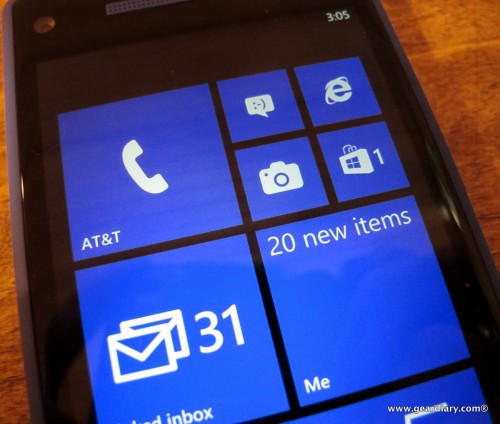
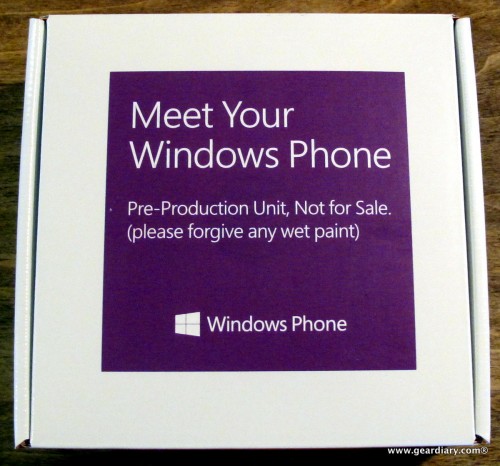
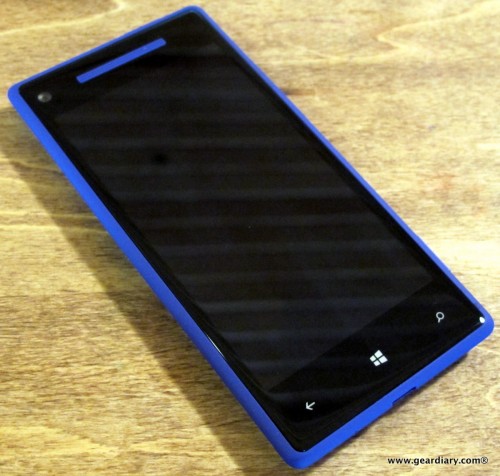
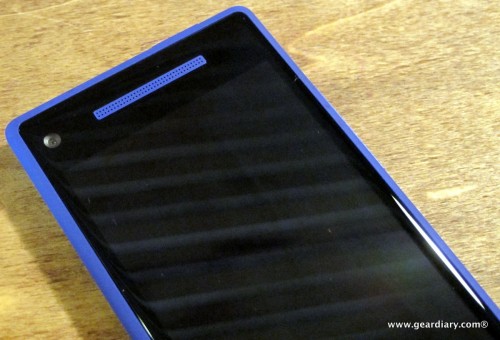
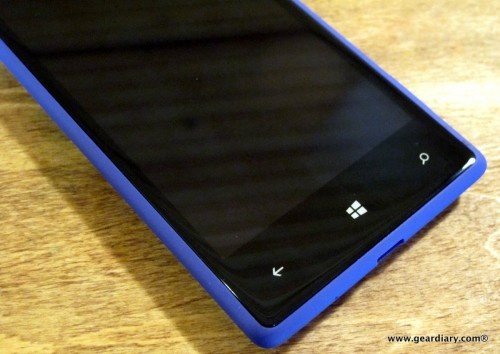
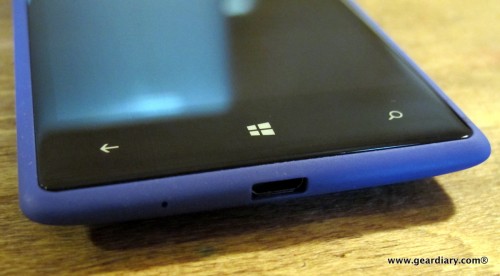
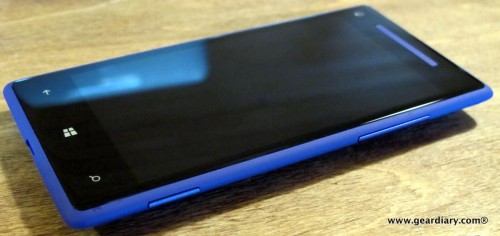
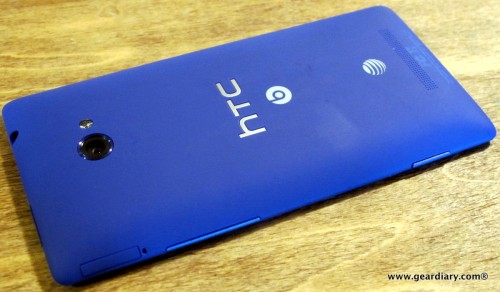
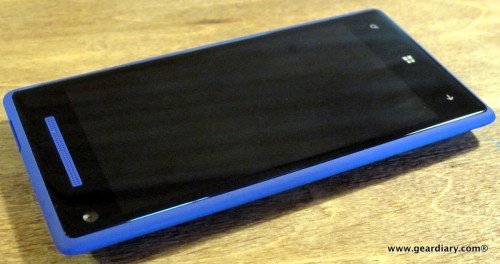
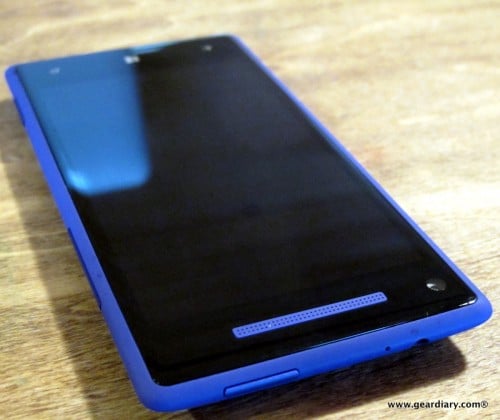
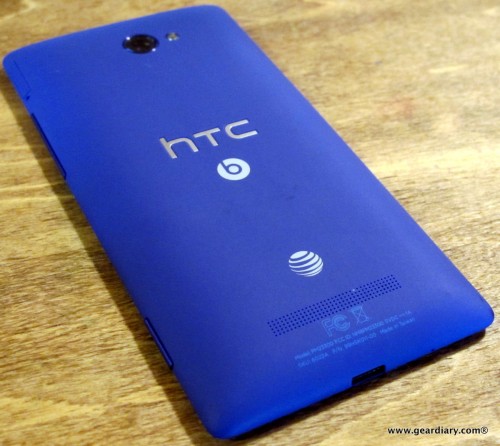
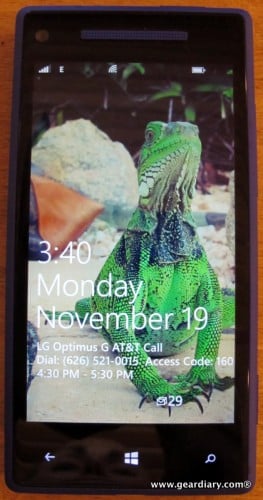
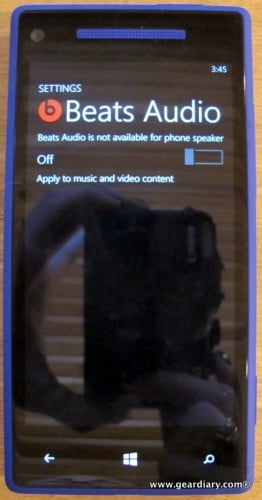
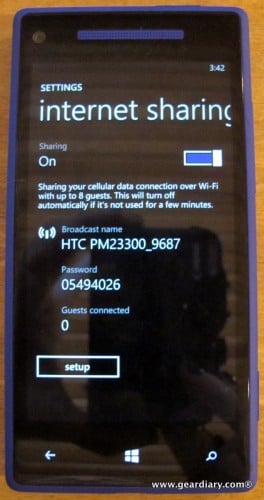

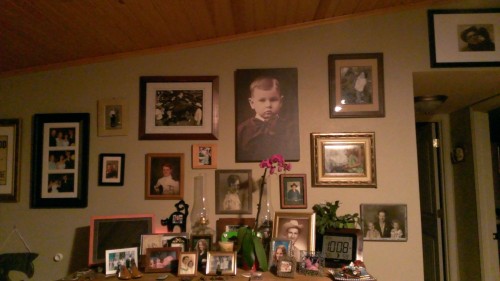


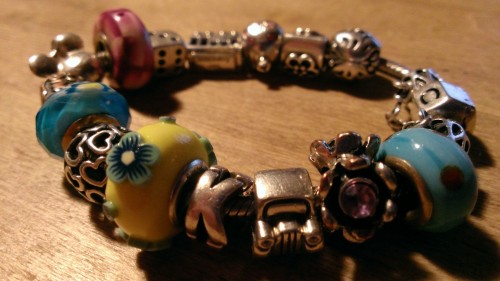
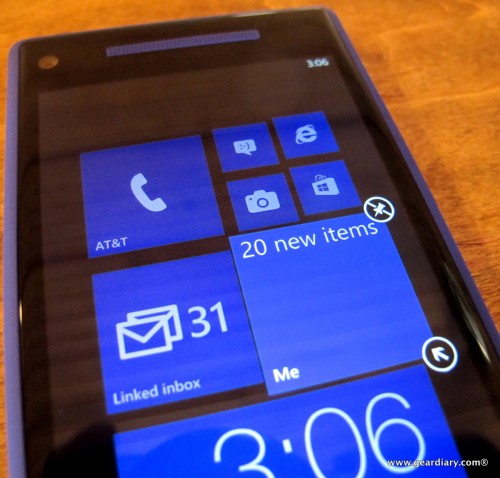
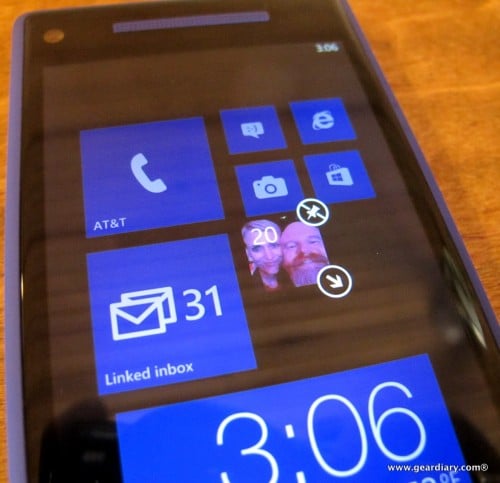
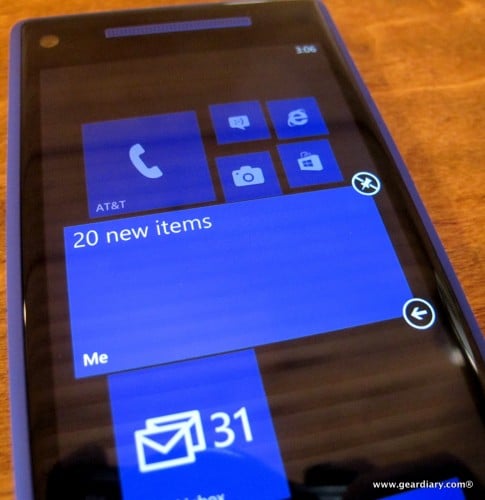
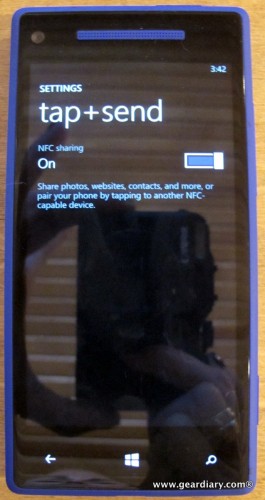
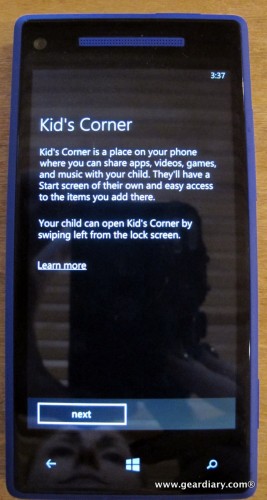
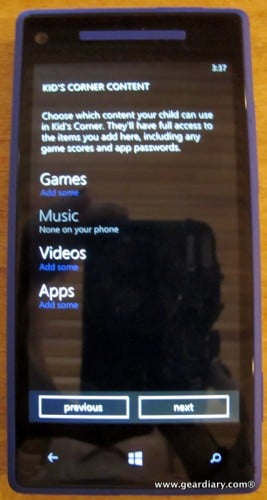
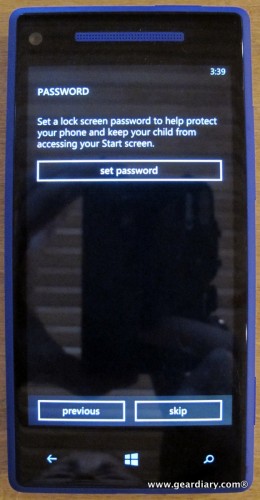
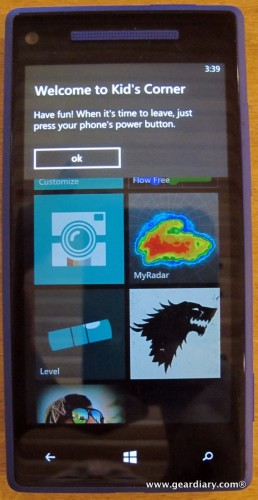
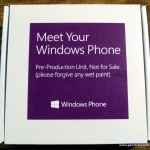
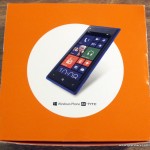
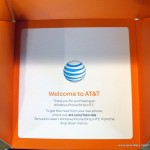
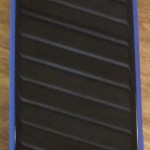
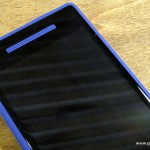
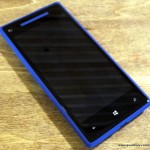
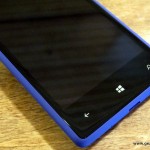
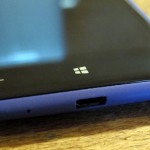
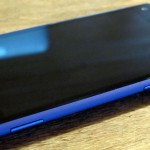
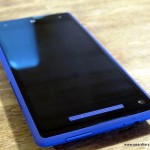
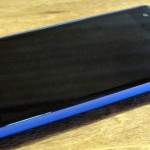
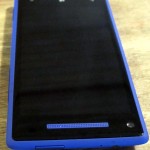
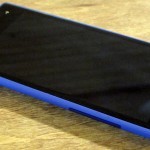
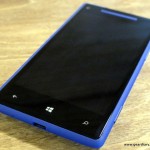
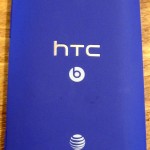
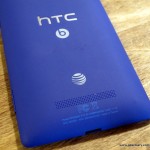
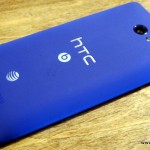
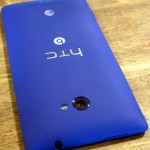
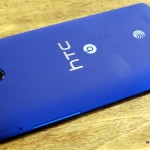
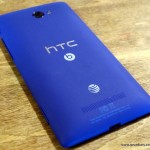
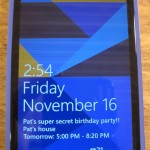
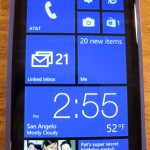
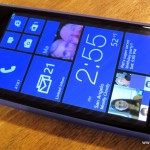
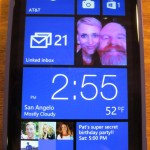
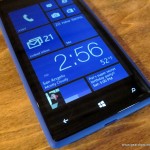
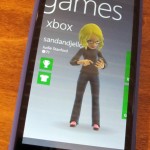

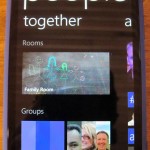
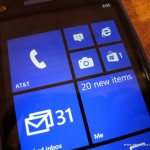
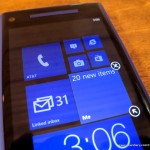
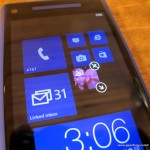
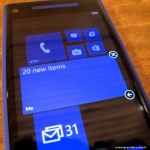
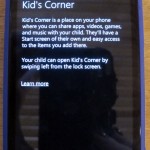
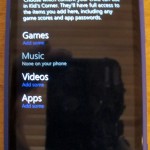
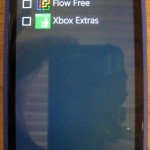
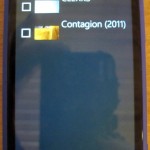
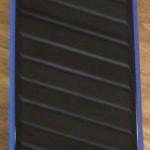
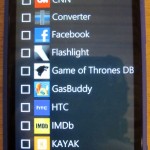
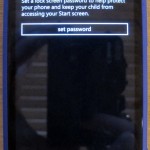
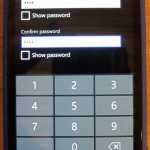
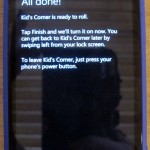

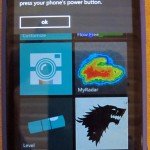
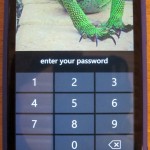
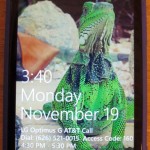
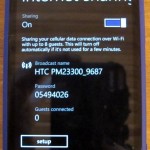
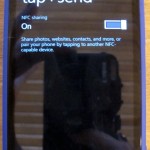
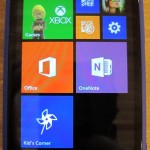
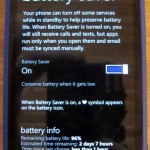
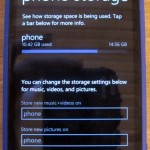
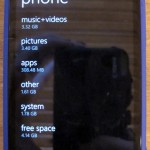
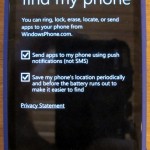
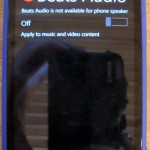
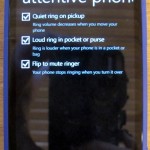
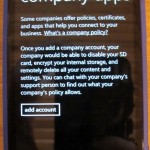




Excellent review. I’ll be posting some of my own comments about the Lumia 920 soon. It has the bigger screen than the 8x, it has 32GB onboard, and I like it’s button placement better! Windows 8 still has a few quirks, and, as you say, a few apps are still missing, but I’m liking this phone a lot!
Thank you! Yes, there is much to like about the 920 — in fact, I bought one up today! I do wish it had the power button in the upper right hand (like the 8X and iPhone have), as it would save me some fumbling, but that’s a minor quibble! 😉 I look forward to reading your thoughts. =)
I’ve recently decided to make the jump to WP8 and the vehicle of choice with which I chose to make that jump is the Nokia Lumia 920.
I really don’t understand the reviewers who criticize the phone for its weight; personally I find the lightweight Samsung phones too plasticky and toy-like and much prefer the heft of the 920 and honestly the iPhone 4S.
I was tempted to get the 8X but decided on the phone with the slightly higher screen resolution and the design touches that I preferred. Like Judie, I look forward to reading your review of the phone. I am still learning the OS and so far, I think it’s pretty cool, but the “wow” factor for me has more to do with the completely new UI paradigm than to any true superiority of WP8 over its competitors.
Thanks, Judie. Your review confirmed my preference for the Lumia 920. The 16GB of storage was an important piece I had not noticed. The 920’s innovative features plus great pricepoint make it a no-brainer for me.
Some missing apps have been a nuisance on the Lumia 900, but the Nokia exclusive apps are fantastic. While I am certainly techno-lusting after the 920, I am getting the feeling that the 7.8 update will be a significant improvement.
You make dealing with NFC seem like more trouble than it’s worth! 😉
At least they are finding new ways to implement it — free books at the airport, etc. =)
Only *seem* like? Wow, you’re much more tolerant than I am 😀
The problem with NFC payments in the US is all of the entrenched players who insist on having a finger in the pie, and the carriers who refuse to be “dumb pipes”. The latter is especially irritating; why should they have a say in the matter at all? I much rather prefer the system Google Wallet has in place.
Contrast with what happened in Japan. Credit cards didn’t really take off until relatively late, so there was a greater incentive for companies to fight it out to make payments more convenient. People have been using their phones to pay for things, get automatic discounts, swipe through train turnstiles, etc. for almost a decade now. You can even swipe your phone to pay for air shuttle tickets!
Thanks for the Japan perspective; I wish that we had the technology in place to make it happen everywhere here. I don’t always have my wallet, but I *do* always have my phone. =)
Oh, one last catch with the ISIS SIM cards; since there’s no Windows Phone app for ISIS yet (not scheduled until 2013), you won’t be able to see any of the transactions you make with your phone without logging into the desktop-formatted ISIS page… assuming that the card will work at all without the app!
16 GB and no expansion slot is a deal-killer as far as I’m concerned. My iPhone has 64 GB and even *that* is often not enough; I find myself juggling apps and movies and TV shows onto and off of the phone constantly, which is a major hassle. 16 GB? Ouch.